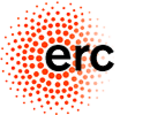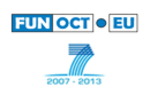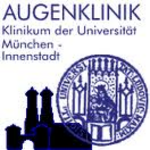Overview of current and completed grants and cooperations
- ITN NExt generation of Tunable LASers for optical coherence tomography (NETLAS) 2020 - 2024
- BMBF Project "Neuro OCT" 2017-2020
- Interreg project "Celltom" 2017-2020
- DFG-Project "FDML laser physics" 2015-2018
- ERC Consolidator Grant 2016-2020
- Spin-off Optores GmbH
- EU-project FUN-OCT 2008-2012
- DFG-project OCT-LABS 2010-2014
- ERC Starting Grant 2010-2015
- Emmy Noether Junior Research Group Grant 2006-2013
- Collaboration with the Eye Hospital of the LMU
- Collaboration with theory group from TUM
ITN NExt generation of Tunable LASers for optical coherence tomography (NETLAS)
2020-2024
The EU-funded international project NETLAS (NExt generation of Tuneable LASers for optical coherence tomography) is a project to educate and support industry and innovation leaders as well as 15 young scientists. Our group is part of this project and provides two of the fifteen young scientists. Within the project duration, the young scientists will travel through different research institutions within the EU, where they will attend training courses and seminars on tunable lasers for optical coherence tomography. In addition, they will work in their "home groups" on concrete realizations of laser light sources. The tasks of the young scientists from our group are:
- development of a new FDML laser with a central wavelength of 800nm
- Development of an ultra-wideband FDML laser
- Application of the newly developed lasers in ophthalmic OCT
(Marie Curie- Innovative Training Network, H2020-MSCA-ITN-2019, 860807, Projektleiter Robert Huber 02/2020 -11/2024, 505.576,80 € (BMO))
Cooperation in the Interreg funded project "Celltom"
2017-2020
Within the framework of the Interreg project Celltom, several partners on the German and Danish sides cooperate to improve imaging at the cellular level for cancer surgery. In addition to the development of new imaging methods, the European promotional initiative Interreg Deutschland-Danmark promotes the Northern European inland space and has set itself the goal of creating a cross-border imaging cluster, which will be available to third parties beyond the project's duration.

Participation in the BMBF-funded project "Neuro-OCT"
2017-2020
As part of the "Neuro-OCT" project, a live 3D OCT system is to be coupled into an operating microscope and its application for intraoperative recording and visualization of tumor borders and vascular architecture is to be tested in clinical applications during brain tumor operations. The project is carried out in cooperation with the Clinic for Neurosurgery of the UKSH and the Medical Laser Centre Lübeck. Of the total funding volume of EUR 2.3 million, the Huber working group accounts for EUR 600 thousand.

DFG Projekt "FDML Laser physics"
2015-2018
The FDML lasers developed in our research group are currently among the fastest tunable light sources. Although the basic principle of the FDML laser is comparatively simple, the practical implementation of the FDML laser results in numerous interesting optical effects that counteract the theoretically ideal operation.
The aim of the research is to gain a better understanding of the physics of these effects and to develop new methods from the knowledge gained, with which the desired behaviour can still be achieved. Particular emphasis is placed on dispersion compensation and the reduction of the effects caused by the dispersion by means of optical filters with high finesse. To this end, new manufacturing processes for such filters are also being researched.

ERC Consolidator Grant (European Research Council)
2016-2020
This project has received funding from the European Union’s Horizon 2020 research and innovation programme under grant agreement No 646669.
The European Union supports the research on a novel endoscopic paltform by an ERC Consolidator Grant with two million Euros. This is already the second grant of the European Research Council (ERC) for Prof. Huber after his ERC starting grant "FDML-Raman". The aim of the project „Endoscopic Comprehensive Optical Multimodal Molecular Intelligent Imaging“ (ENCOMOLE-2i) is to combine different optical imaging modalities like OCT (Optical Coherence Tomography) and SRS-microscopy (Stimulated Raman Scattering) in an endoscope. With this combination, it will be possible to investigate not only the morphology of tissue but also the bio-molecular profile in order to recognize pahtologies at an early stage.
Press releases: |

Collaboration on research and development of the FDML Laser with Optores GmbH
The spin-off Optores GmbH is commercializing the MHz-OCT technology, from the FDML lasers to complete 4D-OCT systems. (more information)

Participation in EU project FUN-OCT - Funding by 7th EU Framework Programme
2008-2012
The EU project FUN-OCT that focuses on the research and development of Optical Coherence Tomography (OCT) aims to provide a platform for functional biomedical imaging. Our group is one of seven participating partners from science and industry. Our task is the research and implementation of FDML laser sources, that will be used for clinical systems within the FUN-OCT consortium. (further information)
Closer collaboration with partners::Medical University Vienna (Center for Biomedical Engineering and Physics) Technical University of Denmark (Department of Photonics Engineering)
Institute of Biomedical Optics (Universität zu Lübeck)
|

Participation in the programme OCT-Labs funded by the German Research Foundation (DFG)
2010-2014
The aim of the DFG project "OCT Labs" is the development of a controlled, ablating laser system for defined and complete removal of bone without damaging adjacent soft-tissue structures. This should be accomplished with a simultaneous detection of the boundary layer using optical coherence tomography(OCT). The contribution of our group will be the development of a suitable, transportable OCT system. (further information)
Closer collaboration with partners:Karlsruher Institut für Technologie(KIT), Universität Karlsruhe(Institute for Process Control and Robotics)) University-ENT-Clinic Düsseldorf (Heinrich-Heine-Universität Düsseldorf) |

Starting Grant by the European Research Council (ERC)
2010-2015
The project "Stimulated Raman analysis and Raman microscopy with Fourier Domain Mode Locked (FDML) laser sources (project number:259158)" funded by the European Union within the ERC starting grant programme aims to evaluate the application of FDML lasers for stimulated Raman detection.
Press releases:
|

Emmy Noether Junior Research Group Grant
2006-2013
The mechanism of Fourier Domain Mode Locking (FDML) was proposed, developed and implemented by Prof. Robert Huber at the M. I. T. during his postdoc period. FDML has the potential to revolutionize biomedical imaging in optical coherence tomography (OCT), to overcome the limits of pulsed lasers and to open up new possibilities in spectroscopy. The aim of the project is to gain a complete theoretical understanding of FDML and to explore possible applications of FDML in biomedical imaging and spectroscopy.

Collaboration with the eye clinic of Ludwig-Maximilians Universität München
Cooperation on the field of ultrafast and ultrawide-field optical coherence tomography (OCT) of the retina with the eye clinic of Ludwig-Maximilians Universität München.

Collaboration with theory group from TU München
In order to gain a deeper understanding of the underlying theoretical framework of Fourier Domain mode-locked lasers (FDML) we are in close collaboration with Dr. Christian Jirauschek (Technische Universität München) whose group is working on simulations on laser dynamics of FDML lasers.













